'Stansted 15' protester Ruth Potts deportation concerns remain
- Published
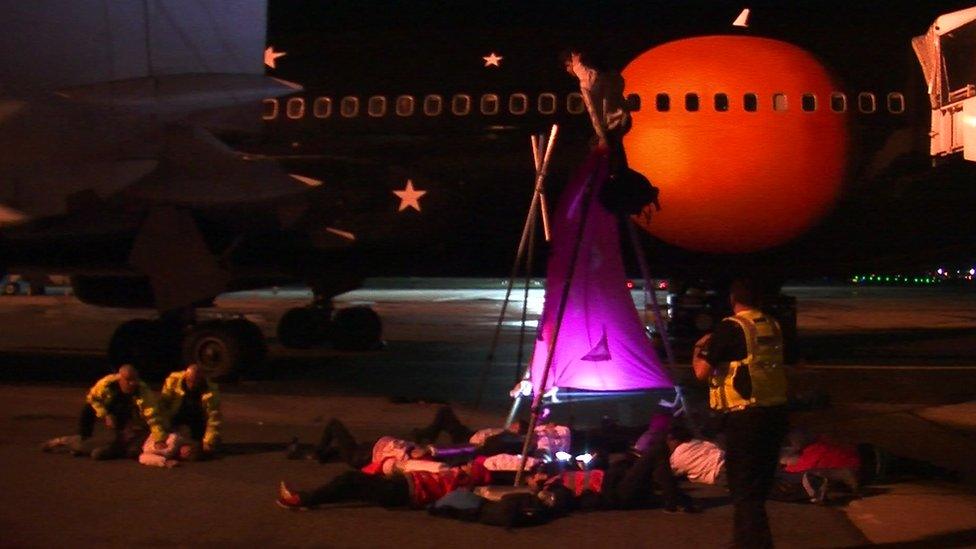
Ruth Potts insists the protest was a peaceful one and described the court verdict as "shocking"
A woman facing a possible life sentence for trying to stop a plane taking off with deportees says her views on deportation have not changed.
Ruth Potts, 44, is one of the so-called "Stansted 15" convicted last month for cutting through a perimeter fence and staging a protest.
An initial charge of aggravated trespass was changed to one under counter-terrorism legislation.
Lawyers representing the activists lodged an appeal last week.
They have asked for the case to be reviewed at the Court of Appeal in London.
On the 28 March 2017 the activists from the group End Deportations attempted to prevent a flight deporting 60 people to Nigeria, Ghana and Sierra Leone.
After a nine-week trial, all 15 people involved in the action were convicted for endangering the safety of an aerodrome under the 1990 Aviation and Maritime Security Act.
Ms Potts, who lives in Bristol, but is a lecturer at Dartington Trust's Schumacher College in Devon, said the verdict was a shock.
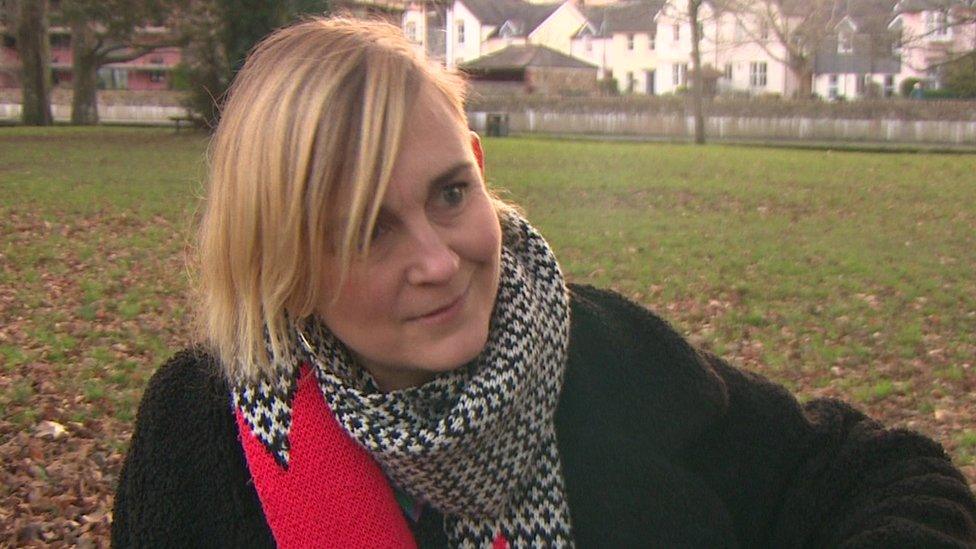
Ruth Potts said despite the "traumatic" court case, her concerns remain about the way people are treated in the detention and deportation system
While she would not wish to go through a nine-week trial again, she said her concerns about the way people are treated in the detention and deportation system remain.
"It was a long and traumatic case and a shock to us all to have been found guilty," she said
"Four people chained themselves round a wheel of the plane so it couldn't move and the rest of us erected a tripod and chained ourselves around that."
Solicitor Raj Chada, a partner at law firm Hodge Jones & Allen, said he found the change of charge as "inexplicable", describing the conviction as a "travesty of justice".
"It was the first time in his entire legal career - of more than 20 years - that he's seen a charge go up overnight from a maximum of three months in prison to a maximum of life in prison," Ms Potts said.
"So it's the order of magnitude. It was a peaceful protest."
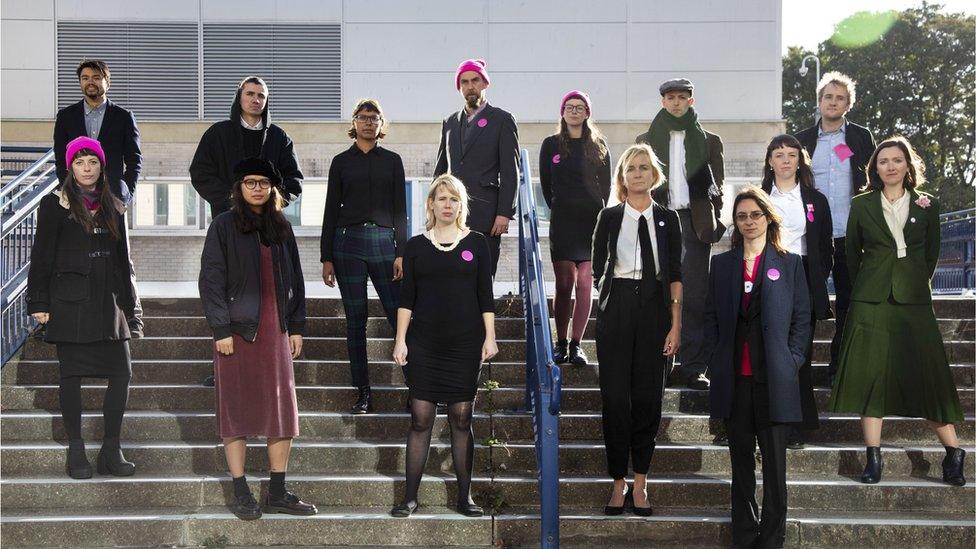
Fourteen of the "Stansted 15", who are appealing against their convictions, are due to be sentenced in February
But Crown Prosecution Service (CPS) spokeswoman Judith Reed said: "These people placed themselves, the flight crew, airport personnel and police at serious risk of injury of even death due to their actions on the airfield."
A Home Office statement said the court case was brought by the CPS and ruled upon by the independent judiciary.
"We only return those with no legal right to remain in the UK, including foreign national offenders and failed asylum seekers," a spokesperson said.
"We expect people to leave the country voluntarily but, where they do not, the Home Office will seek to enforce their departure."
Amnesty International called the verdict a "crushing blow for human rights", while Ms Potts employer, The Dartington Trust, also voiced its concern.
A statement from Chief Executive Rhodri Samuel said: "We share the serious concern expressed by Amnesty and others about the use of terrorism legislation as a way of dealing with civil disobedience."
The activists are due to be sentenced next month.
The others found guilty are:
Lyndsay Burtonshaw, 28;
Nathan Clack, 30;
Laura Clayson, 28;
Melanie Evans, 35;
Joseph McGahan, 35;
Benjamin Smoke, 27;
Jyotsna Ram, 33;
Nicholas Sigsworth, 29;
Melanie Strickland, 35;
Alistair Tamlit, 30;
Edward Thacker, 29;
Emma Hughes, 38;
May McKeith, 33;
Twelve of the defendants' given addresses are in north London; Burtonshaw's is in Brighton and McGahan's is in Reading.
- Published8 January 2019

- Published10 December 2018
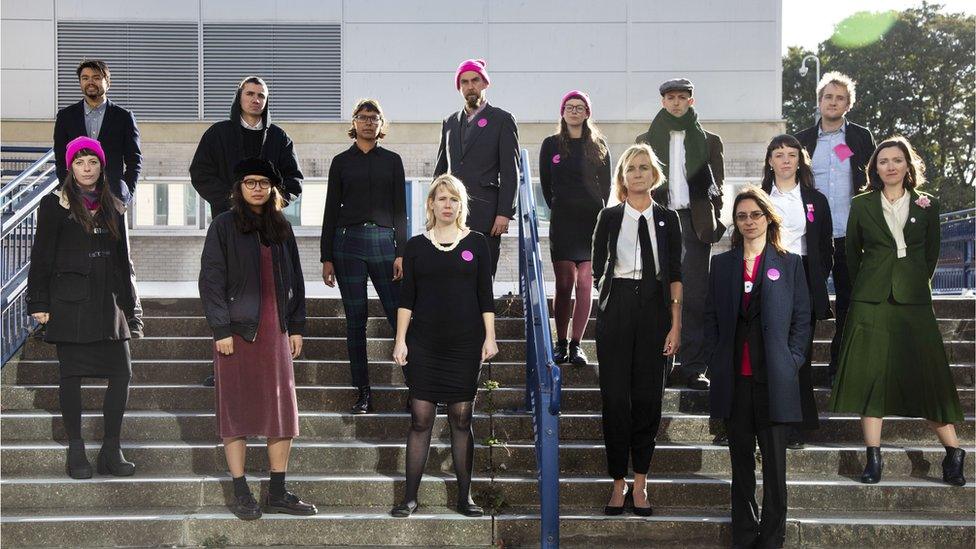
- Published6 November 2018
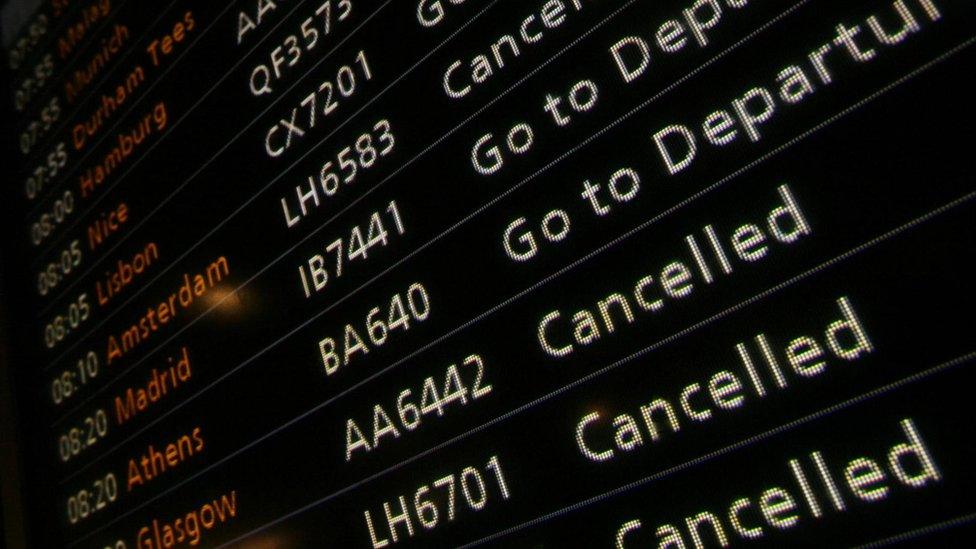
- Published2 October 2018
